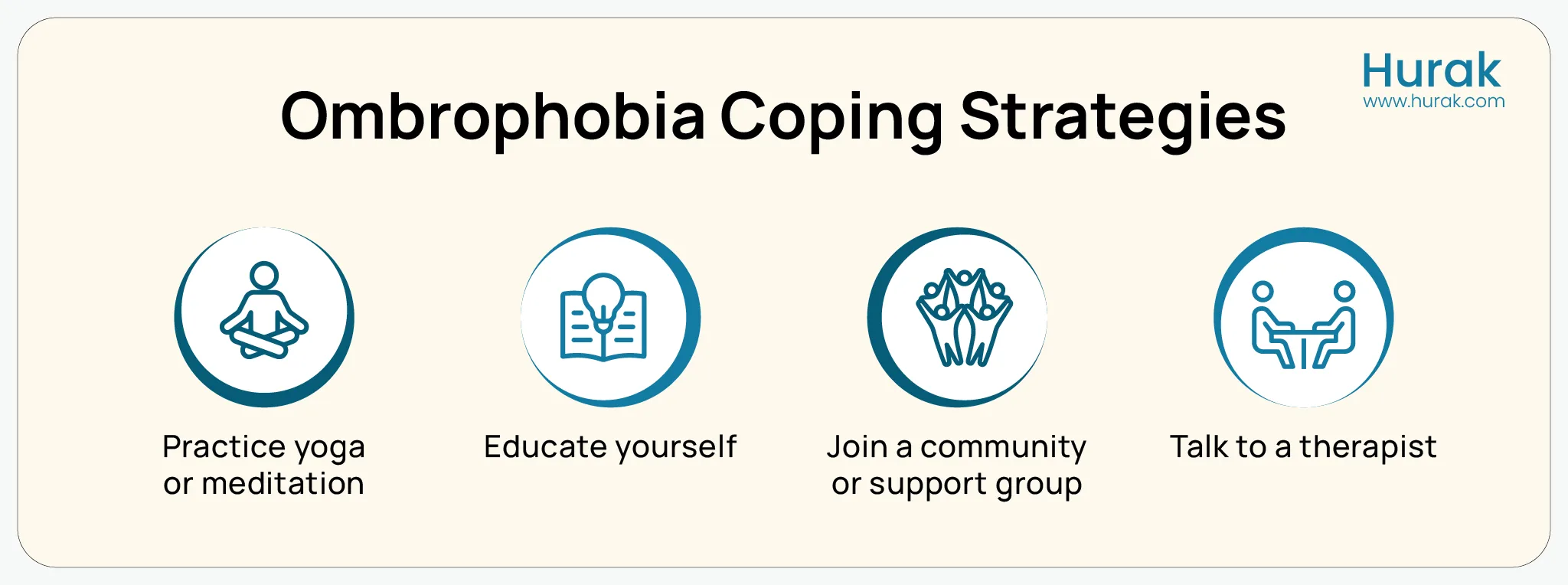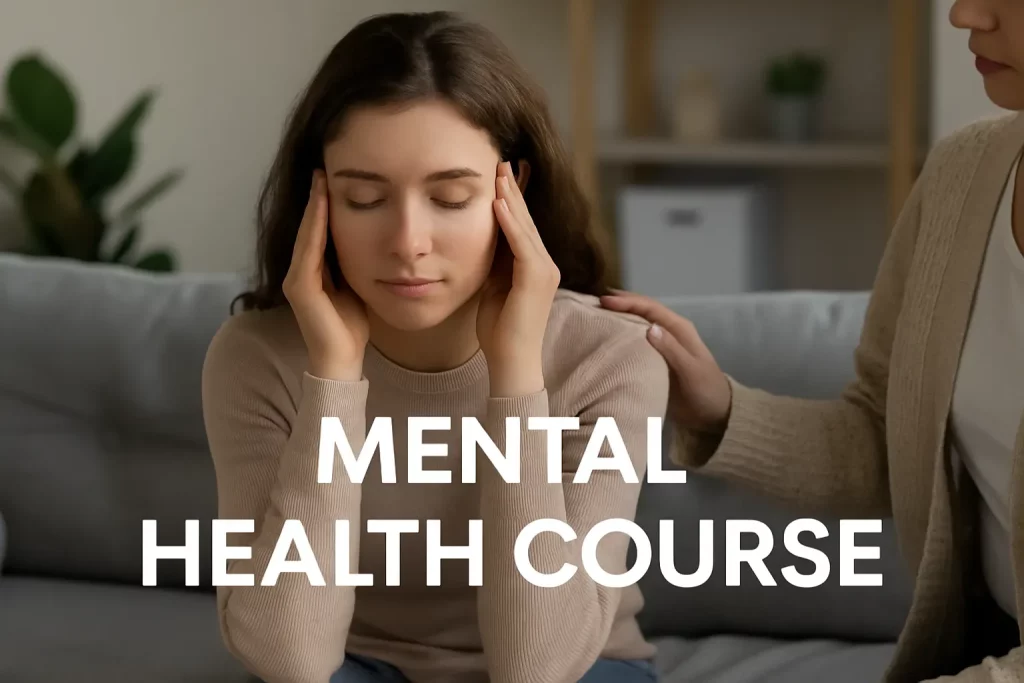Ombrophobia is a specific phobia characterised by an intense fear of rain. Ombrophobes may feel anxious or panicked even at the thought of rain. Though the term is not widely known, the condition is relatively common in the UK.

Exploring Ombrophobia
Ombrophobia is marked by an overwhelming and irrational fear of rain. Although the condition is rarely diagnosed, it is relatively common among people in the UK, where rain is frequent. An ombrophobe may experience anxiety or panic attacks simply at the thought of rain. While rain can be unpleasant due to the discomfort it causes, individuals with ombrophobia are significantly affected, often disrupting their daily lives.
Signs and Symptoms of Ombrophobia
People with ombrophobia often experience a combination of physical and behavioural symptoms when confronted with rain or even the thought of it. These reactions can range from mild discomfort to severe anxiety, and they may interfere with daily functioning.
Physiological symptoms | Behavioural symptoms |
Dizziness | Avoiding outdoor activities due to rainy weather. |
Nausea | Constantly checking weather forecasts |
Trembling | Skipping appointments or travel due to rain |
Rapid breathing | Excessive worry about loved ones being exposed to rain |
Profuse sweating | Social withdrawal to avoid rain-related stressors |
What Causes Ombrophobia? Key Factors Behind the Fear of Rain
Ombrophobia can stem from a range of psychological and environmental influences. While every individual’s experience is unique, the following are some of the most common contributing factors:
Traumatic Experiences
A direct or indirect traumatic event involving rain, such as being caught in a thunderstorm, a flooding incident, or even a frightening weather-related news story, can leave a lasting emotional imprint. This trauma may lead the brain to associate rain with danger, triggering a persistent fear response.
Learned Behaviour
Fear can be learned through observation. Children who see parents or caregivers reacting anxiously to rain or storms may internalise this fear themselves. Over time, this behaviour can evolve into a deep-seated phobia, especially if left unaddressed.
Sensory Sensitivities
For individuals with heightened sensory processing, such as those on the autism spectrum or with sensory processing disorder, the sound, feel, or even smell of rain can be overwhelming or distressing. This discomfort may contribute to developing ombrophobia over time.
Underlying Anxiety or Mental Health Conditions
People with generalised anxiety disorder (GAD), panic disorder, or other mental health conditions may be more prone to developing specific phobias like ombrophobia. In such cases, the fear of rain may be a symptom of broader emotional distress or hypervigilance.
How to Cure Ombrophobia: Effective Treatment Options
If you’re struggling with ombrophobia, there are several ways to manage the fear and regain control. These strategies combine education, therapy, self-help techniques, and social support to guide you on your recovery journey:
Education And Awareness
Understanding what ombrophobia is and why it happens can make it feel less overwhelming. Learning about its causes and triggers gives you the tools to face the fear with more confidence and control.
Cognitive Behavioural Therapy (CBT)
CBT is one of the most effective ways to treat phobias. It helps you spot and challenge the negative thoughts you have about rain. With the help of a therapist, you’ll learn how to replace these thoughts with more balanced, realistic ones, making rainy days feel less threatening.
Exposure Therapy
Exposure therapy is a powerful CBT technique. It works by gradually exposing you to rain-related situations in a safe and controlled way. You might start by listening to rain sounds or looking at images of rain, and slowly progress to being outside in light rain. This step-by-step process, known as systematic desensitisation, teaches your brain that rain isn’t something to fear.
Medication Support
In more serious cases, when therapy on its own isn’t enough, short-term medication might be an option. Always speak to your GP or a mental health professional first. Medication is usually most effective when used alongside therapy, not as a standalone solution.
Relaxation and Mindfulness Techniques
These techniques help reduce anxiety and calm your body during stressful moments:
- Deep Breathing Exercises: Slow, steady breathing activates your body’s natural relaxation response and helps ease panic.
- Progressive Muscle Relaxation: Tensing and relaxing your muscles one group at a time can release physical tension and reduce stress.
- Mindfulness Meditation: Staying present helps you feel more grounded and less reactive to rain-related triggers.
Join a Community or Support Group
Talking to others who share the same fear can be incredibly comforting. Whether online or in person, support groups give you a space to share experiences, gain encouragement, and learn practical tips from people who genuinely understand what you’re going through.
Coping Strategies for Ombrophobia
Check out these practical coping strategies for managing ombrophobia, presented in an easy-to-follow image:

Frequently Asked Questions
What is ombrophobia, and how is it related to rain anxiety?
Ombrophobia is an intense fear of rain, often leading to anxiety, avoidance behaviours, and distress during rainy conditions. It’s also commonly referred to as rain anxiety.
What causes ombrophobia to develop?
Ombrophobia may be caused by past traumatic experiences related to storms or heavy rain, learned behaviours from others, or underlying anxiety disorders.
What are the symptoms of ombrophobia?
Symptoms can include rapid heartbeat, sweating, nausea, panic attacks, and a strong desire to avoid rain or stay indoors during wet weather.
How can you treat or cure ombrophobia?
Treatment options include cognitive behavioural therapy (CBT), exposure therapy, medication for anxiety, and relaxation techniques to manage symptoms.
Explore Our Range of First Aid and Mental Health Training Courses
Looking to broaden your first aid knowledge? Here are more expert-led courses we offer at Hurak:
- Emergency First Aid at Work (EFAW) – A one-day Level 3 course suitable for low-risk workplaces, covering essential first aid skills.
- Basic Life Support (BLS) Course – Learn critical life-saving procedures including CPR, AED usage, and choking response.
- Mental Health First Aid (MHFA) – Equip yourself with the skills to support mental well-being and manage mental health crises in both workplace and community environments.
Looking for more information on Mental Health First Aid? Visit our Mental Health First Aid courses to explore available training options.





